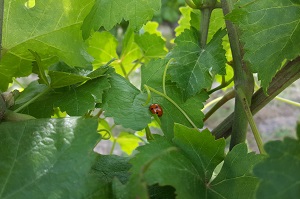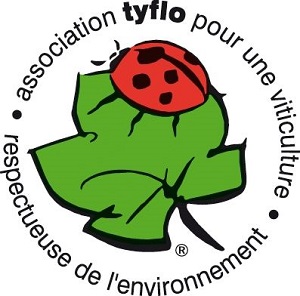Wine lovers are becoming more and more demanding when it comes to the environmental impact of making wine on the vineyards and surrounding land, and in knowing what has been added to the wine before it reaches their glass. And so a number of labels and charters have been developed and applied to the world of wine, the most common of which are organic, biodynamic and natural wines.

The main differences
In this article we're going to set out the main characteristics of each practice, whether in the vineyard or cellar, but we it would make for far too long an article to be completely exhaustive. To dig a bit deeper, please take a look at some of our other articles on organic winemaking or biodynamic winemaking.
Conventional winemaking practices are currently being questioned because there is no longer the same importance put on forever increasing yields and the development of chemical products to enable it to happen. The use of synthetic substances to protect the vines from disease and produce more grapes per vine has seen opposition in the form of sustainable or integrated winemaking.
Whilst not organic, sustainable winemaking attempts to limit the deterioration of the soil and to better respect the environment by restricting the chemical treatments to the bare minimum, as the label for sustainable winemaking, Terra Vitis hopes to promote.
Integrated winemaking is a blend of sustainable and organic practices that also try to keep the use of chemical products to a bare minimum. The Tyflo label is used to signal this approach.

Organic winemaking is founded upon the suppression of chemical products that penetrate the vines, protecting them from within. As such, all chemical pesticides, fungicides, fertilisers and weed killers are banned. To receive the organic label, within the EU it's the green leaf logo made up of small stars, it takes three years to convert and receive the certification. In France, certification is controlled by independent organisations such as Ecocert or Qualité France. (See a complete list of organic certification bodies).
In organic winemaking, the winemaker uses natural products such as plants, copper or sulphur. These are all contact products and protect the vine from the outside. This is all well and good during dry weather, but has the disadvantage of being washed away when it rains, meaning that the vines need to be treated more often in wetter climates. Organic farming techniques have the advantage though of improving the quality and microbial life of the soil, and promoting a more natural environment in which insects and plants co-exist and compete.

But it's not just in the vineyard that the difference can be found. Since 2012 making wine organically also means regulating what happens in the cellar, such as reducing the level of sulphites, using indigenous or organic yeast cells, and using organic sugar if chaptalising wines. That is why for vintages prior to 2012, a phrase such as "wine produced using organically certified vines" could be found on the wine lables, and it is only since 2012 in France that the words "Organic Wine" could be printed on the labels, once the whole of the production chain was controlled and certified.
Biodynamic winemaking is all about looking at the vines and wine in the context of their surrounding environment. In the vineyard, an equilibrium is sought between the plant and the soil based on the lunar calendar. It is sometimes compared to homeopathy and the treatments are created using plants, silex and animal matter.
It should also be noted that the levels of copper and sulphur used are considerably lower than with organic winemaking. To become biodynamically certified, the winery needs to first certify the vineyards concerned and wine-making process used as being organic, and then it needs to conform to the charter of a biodynamic organisation such as Demeter or Biodyvin.

Natural wines have gained momentum over the past few years, and this term is used to describe wines that have been made from grapes having had the least intervention possible and where the juice has had nothing added to it. The idea is to let nature do virtually all the work and for the winemaker to act just as a facilitator. For example the grapes are harvested by hand, no yeast cells are added to start the fermentation, and no products are added to the wine to help stabilise and preserve it.
There isn't currently any official label or certification process for natural wines. Some organisations and associations who promote natural wines, recommend organic certification, but it's not an obligation, and none of their charters is bound by law.
How to recognise the labels?
So with the exception of natural wines, different labels exist to help the consumers of French wine to know whether a wine is certified as being organic, biodynamic, or sustainable.
But when looking for labels, you have to bear in mind that they only identify those winemakers that have taken the route to be certified. Many winemakers use organic, integrated or sustainable approaches without necessarily going through the certification process due to a lack of time, for financial reasons, or to be free from added bureaucracy and controls. Official certification however remains the best proof though that the winemaker has indeed respected the charter.
The important thing is to understand the approach used by the winemakers and to discuss this with them if possible when you taste their wines. Your beliefs and convictions will also be important when choosing a bottle, but of course the principal criteria when choosing which particular wine should always remain its taste. As with conventional wines, there will be wines that you like and don't like. Any label, whether it be organic, biodynamic or sustainable, isn't a guarantee of its perceived quality. The final step is to put faith in your senses to make the best pick!
Related articles
What makes French Organic Wine, Organic ?
Comments
No comments.




